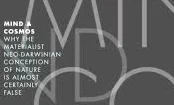Skyfall: Jetset Angst
February 24, 2013
THE PROBLEM with James Bond, and a problem that runs through Skyfall, the latest instalment in this creaking super-spy series, is that after the excellent Bourne trilogy, the producers feel they ought to up their game and strive to be taken more seriously, while at the same time trying to maintain the old Bond panache and joie de vivre.
What we have, then, is the usual preposterous stunts performed against a variety of exotic and opulent backgrounds, the usual gorgeous girls pouting and flirting in casinos and five-star hotels, but now with a few psychological back-stories and a dose of moral ambiguity spooned into the mix.
At least this time the director (Sam Mendes) has managed to construct a plot that is almost strong enough to justify the customary jetset location shooting, thereby giving at least a semblance of narrative structure to the usual risible scenes featuring an unnamed deskbound operative pointing at a blip on a screen and saying, “the enemy’s in Shanghai!” or “the microfilm is in Port Au Prince!”, at which point 007 hops onto a plane with his gun and his gadgets and commits various murders without even pausing to consider the possibility that the local police might notice.
Despite the adulation, Skyfall is little more than a serviceable Bond film. What moral ambiguity there was earlier in the story is quickly discarded, and we are back to straightforward hero worship as Bond retreats to the Scottish highlands for no very good reason, trying to persuade us that this would be the easiest way to fend off a highly intelligent and heavily-armed lunatic (with dozens of heavily-armed lunatic comrades) who has got it into his torture-addled brain that he needs to kill Judy Dench. Everything becomes reassuringly silly as Bond prepares his ambush, throwing in the usual courageous “smoke me a kipper” stiff-upper-lip quippery as his old house is blasted into smithereens by a military helicopter the bad guy has somehow managed not only to procure but also to fly across the length of Great Britain without being shot down, even though he is presumably being pursued by every authority in the land after destroying the MI6 building, derailing an underground train and mounting an attack on Parliament. It is all very silly indeed, and the conclusion – with its deafening explosions, and its inexhaustible supply of musclebound enemy goons getting mown down by gunfire or pulverised by homemade bombs – is silliness squared, and protracted far beyond my boredom threshold.
After Bourne and Jack Bauer, one wonders what purpose Bond serves these days – though the question is perhaps superfluous when you consider how much the franchise continues to earn. Still, in his heyday after the Second World War, Bond served to reassure British audiences about the role that plucky patriots can play in maintaining their nation’s exalted place in global affairs. It was always a kind of nostalgia for the era of the Empire, for the SOE, and for the notion of good British eggs flushing out the rotten foreign apples. But by now, I doubt it would be entirely clear to most younger viewers what it is that Bond is actually nostalgic about.
The moral ambiguity cannot help either, because Bond has never been deployed to inject any sort of realism into the way the British look at themselves, into the agonies of colonialism or the former superpower’s slow descent into irrelevance as the world it used to own is carved up by Washington, Moscow or Beijing – rather the opposite, in fact. That’s why the new films, despite the fleeting nods towards Bond’s childhood traumas and passing references to the toll his job is certain to have on him, are never quite able to convince. Having to stick to the tried and tested escapist, UK-aggrandising formulae means that they are never quite able to go the whole way when it comes to describing the central character’s psychopathic, self-deluding qualities, or to his alcoholism and nihilistic womanising.






